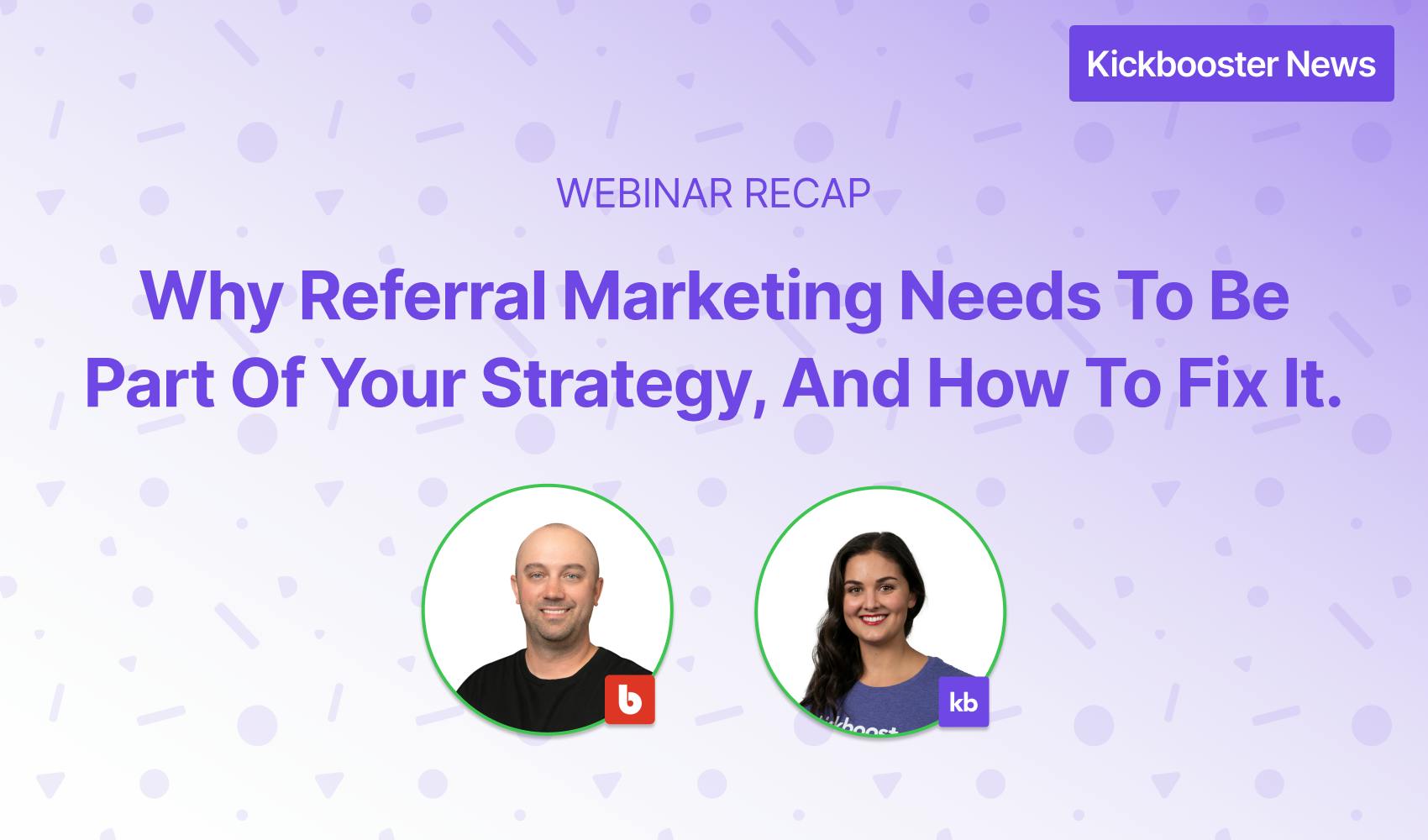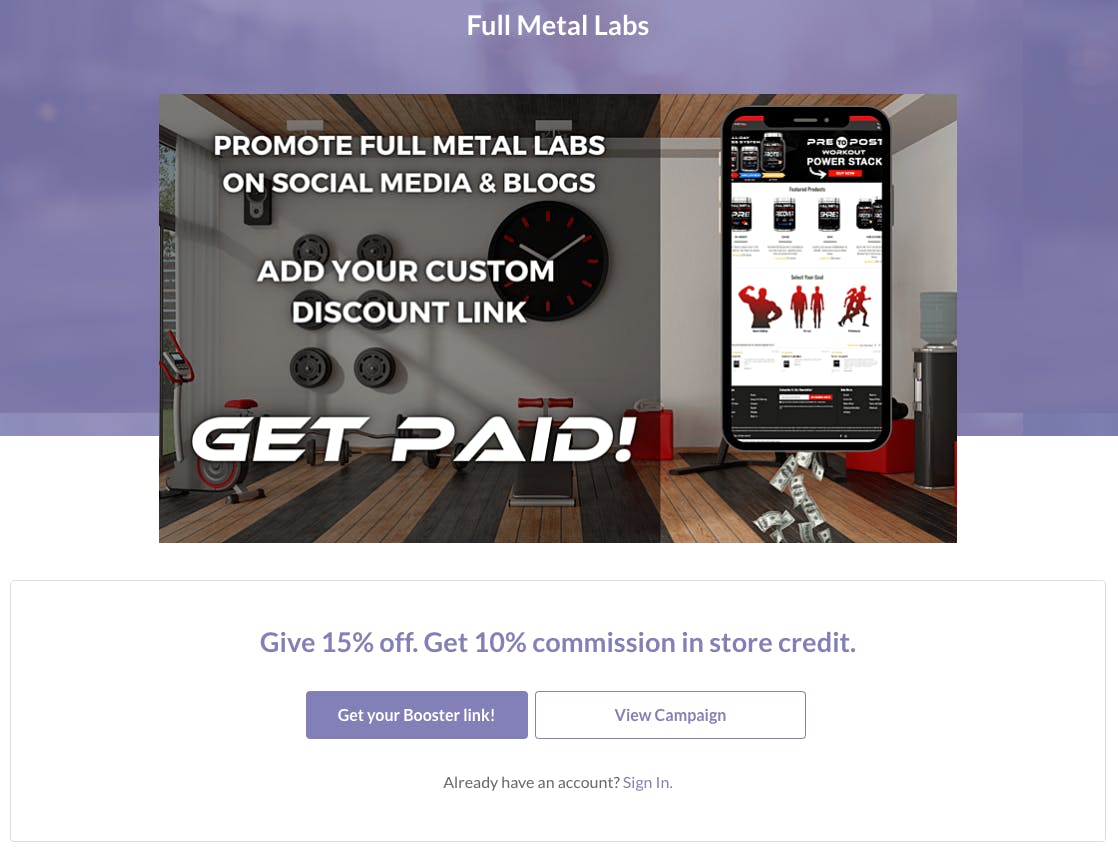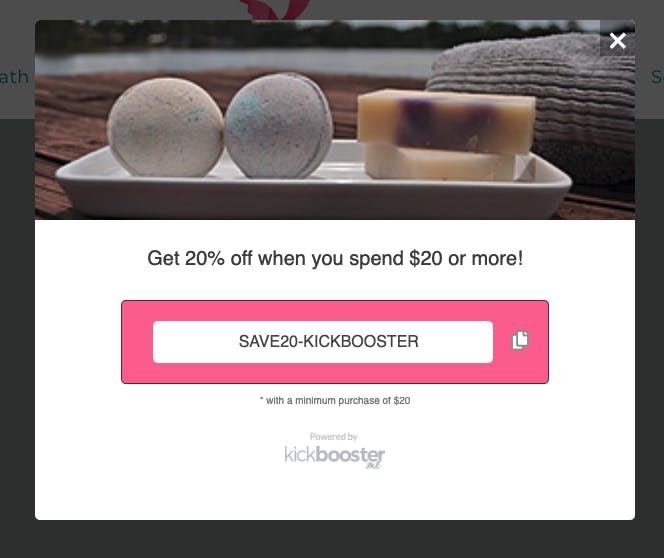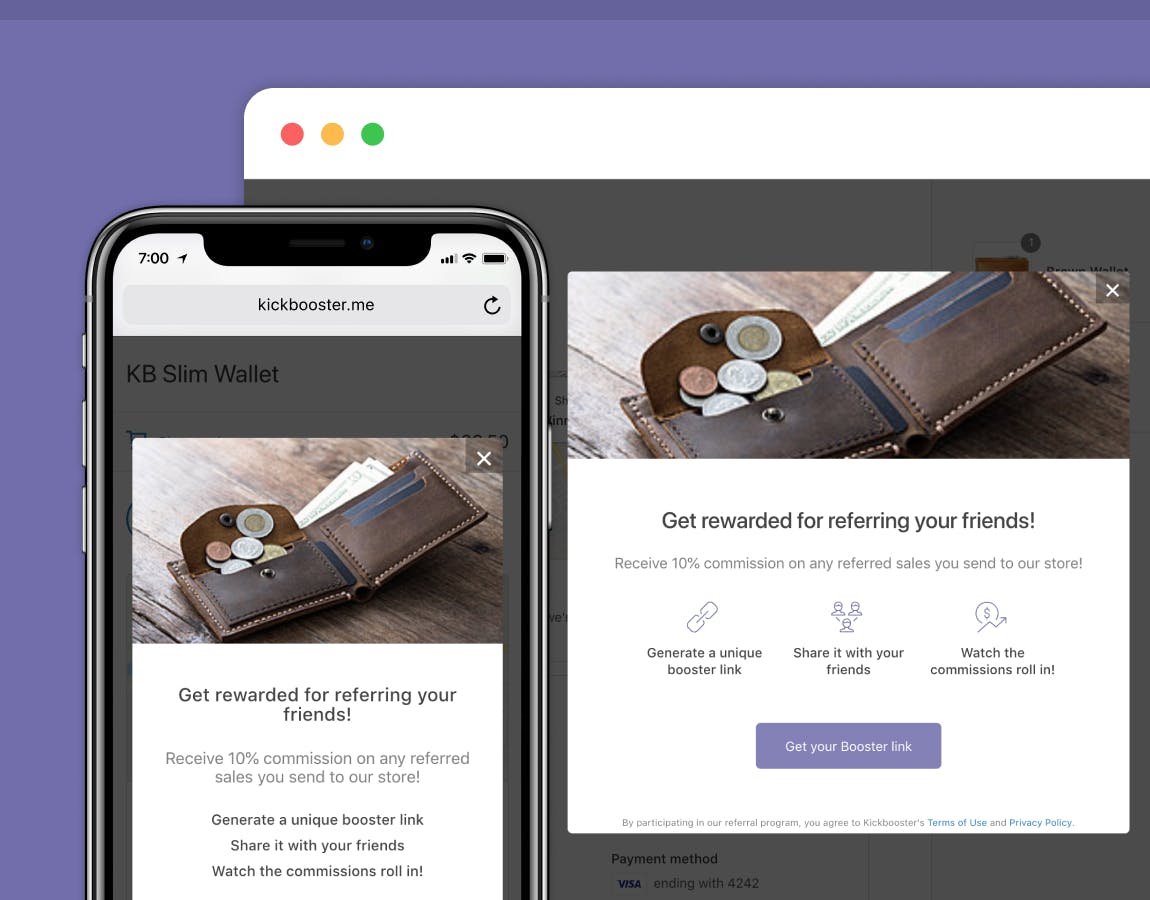Webinar Recap: Why Referral Marketing Needs To Be Part Of Your Strategy, And How To Fix It

On November 10, 2021, Bold Commerce Co-Founder, Jay Myers and Marketing Strategist for Kickbooster, Shelby Olson hosted a webinar titled, ‘Why Referral Marketing Needs To Be Part Of Your Strategy, And How To Fix It.’
The webinar covered topics such as,
- The difference between affiliate, influencer and referral marketing
- How to turn your customers into your top promoters
- How to build effective relationships with influencers
- How to encourage user-generated content & maximize your ROAS
- How to get started
Here’s a summary of what was discussed. To watch the entire webinar, follow the link below.
Affiliate vs Influencer vs Referral Marketing
- Affiliate Marketing: Typically involves partnering with people or organizations who will share your product on another brand or website.
- Influencer Marketing: Strategic partnerships where brands engage influencers to help promote their products and services.
- Referral Marketing: Involves leveraging your customers and fans to share to their friends, family and social networks.
People are 4 times more likely to make a purchase when referred by a friend
Brand advocacy means that people who genuinely love your brand will support you and promote your products to their networks. You can build brand advocacy by:
- Developing relationships with your customers
- Offering them special perks
- Having a social media presence
- Asking for and implementing customer feedback
Here are some things you can offer your brand advocates in exchange for supporting your brand:
Store Credit
Your brand advocates love your brand. Often they would be very happy with receiving store credit as a reward for their efforts. This is great for you because it still keeps the flow of money within your ecommerce environment. This is different from affiliates/influencers who would be wanting cash commission as compensation for their efforts.

Coupons
Arm your brand advocates with the means to incentivize their network. Providing them with a coupon code that they can share is a powerful way to drive new traffic to your store.
Exclusivity is KEY! Arm your brand advocates with something you're not giving away on your site.

Recruit More With A Post-Purchase Popup
How great would it be if your current customers were sharing to their friends/family after they make a purchase from you. Once this is set up, it can also be fairly passive for the store owner.
You’ve likely experienced this when you make some online purchases, often in the form of a pop-up after you complete your checkout. Every time you make a sale you could also potentially gain awareness of a new pool of potential customers.

Building Relationships With Influencers
An influencer is an individual, group, or organization who has the power to affect purchasing decisions.
Influencers are not just young people appealing to young audiences. There are influencers in every niche, at and appealing to every age. They can be celebrities, experts, authoritative figures, social connectors, people with strong personal brands, analysts, activists, journalists, and even hobbyists.
There are four sizes of influencers,
- Mega influencers: Over 1 million followers
- Macro influencers: Between 100K - 1M followers
- Micro influencers: 10K - 100K followers
- Nano influencers: Under 10K followers
Your objective will determine the influencer type that’s right for you.
The 3 R’s to consider when looking for influencers are:
- Reach - audience size
- Resonance - engagement power
- Relevance - contextual fit
When reaching out to influencers, be personal, tell them why you think their audience would love your product, compliment their work and ask if they’re open to collaborating.
How to Use Influencers to Maximize ROAS
Influencers are some of the best salespeople, because they sell without it feeling like you’re being sold to. They are masters at creating content that resonates with and speaks to their audience.
When it comes to influencer marketing, the average return is about $5 for every $1 invested, but companies that execute their influencer strategy really effectively can often see average returns closer to the $18 mark for every $1 invested.
How To Get Started
Getting started with referral marketing is easy,
- Add Kickbooster to your Shopify store
- Set a cookie duration
- Choose a reward for your affiliates
- Choose an incentive for your referred customers
- Design your signup page

